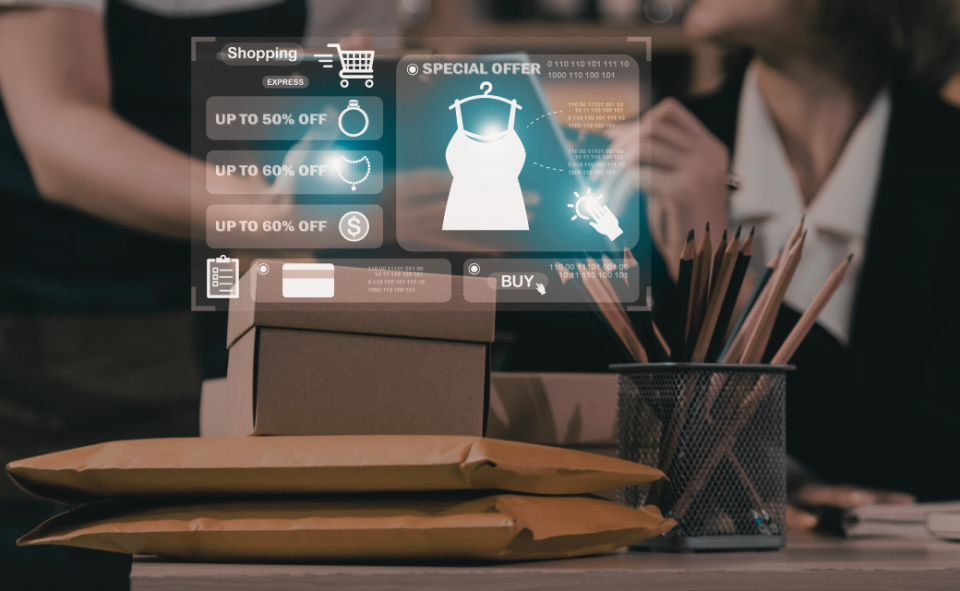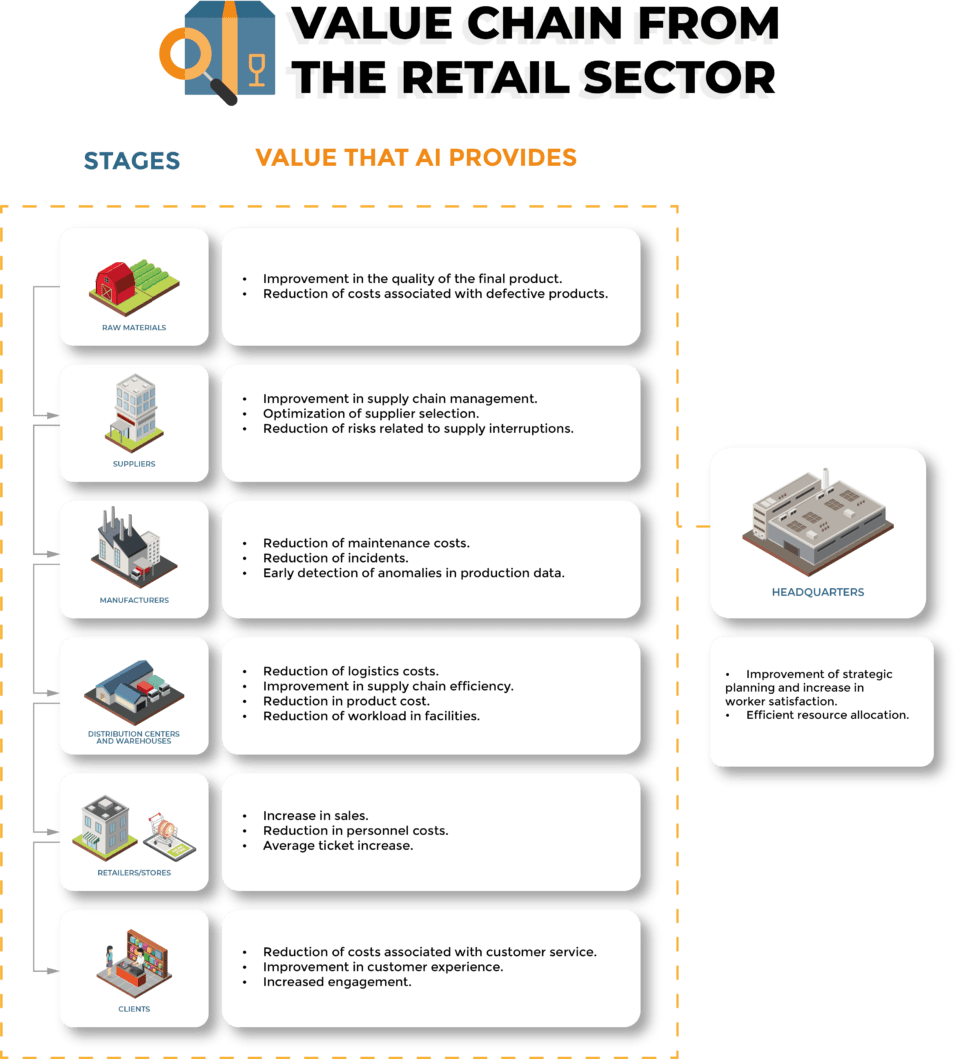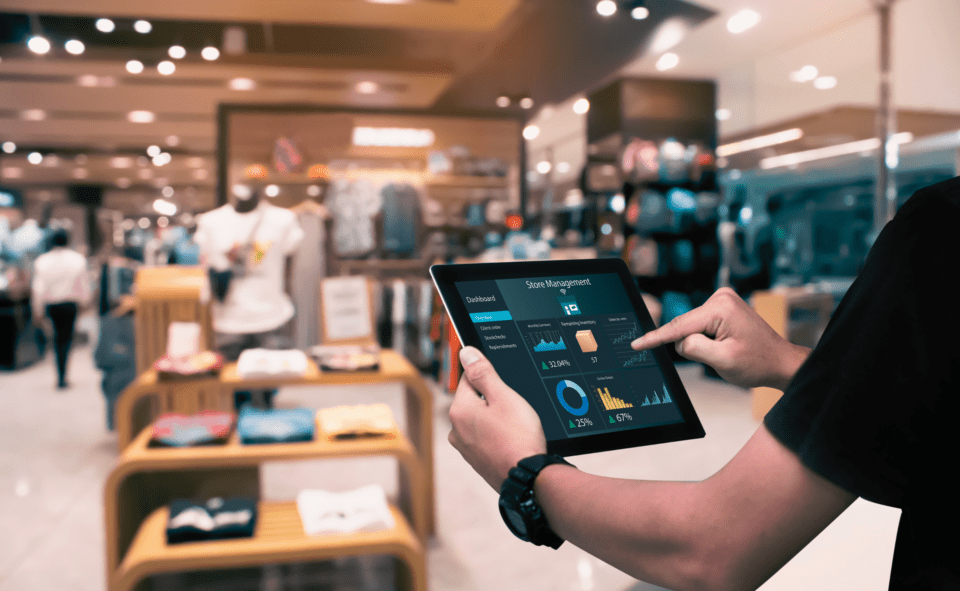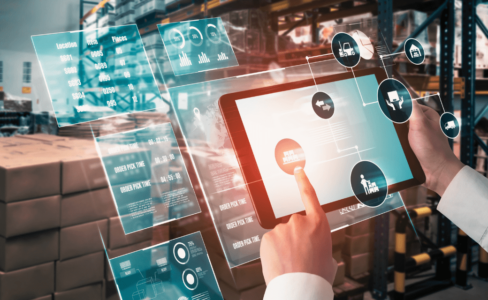In the retail field, the incorporation of Artificial Intelligence (AI) is not only a crucial opportunity to adapt in the best possible way to consumer requirements, but also as a tool that allows retailers to make strategic decisions to improve the performance of the business as a whole and increase sales. The ability to get closer to the customer, provide personalized offers, and understand their needs in real time are just a small part of the advantages that these applications can offer.

The areas of application of the good use of Artificial Intelligence range from the manufacture of more suitable products, operations management, pricing policies that improve margins, warehouse management, product rotation, operations management in store, the best use of marketing campaigns, to the improvement of the shopping experience. These applications seek to facilitate informed decision-making and allow us to explore scenarios that are often unknown to us.
The use of tools of this type is taking its first steps in the retail industry, and it is estimated that the adoption rate worldwide will double, going from 40% to 80% in the next three years, according to research carried out by IBM.
In conclusion to the previous paragraphs, it is in the widespread use of AI, that is, in all parts of the chain, where the best results are presented. As examples, we are going to develop some applications in key aspects of retail:
- Products/Services:We should differentiate two parts at this point. On the demand side, Artificial Intelligence makes it possible to analyze extensive sets of data on customers, their preferences and the evolution of product sales, facilitating the identification of trends and predicting changes in demand reliably.
- Price:AI helps to set appropriate and dynamic prices. This means that through data analysis and the correct optimization algorithms, we can have a pricing and offer policy adapted to the current and forecast demand data, product rotation needs, our competition and market trends. A better pricing policy will help to have a better margin.
- Points of sale: from the best location of a store in terms of average income, population density, type of customers, competition… to improving the shopping experience in stores, eliminating barriers between physical and digital channels. AI offers great advantages through the correct use of predictive and prescriptive algorithms.
- Marketing: Adapting our promotions so that they are shown to the most appropriate person is possible with the use of these technologies and is applicable to both online stores and physical stores.AI can use purchase history data and customer behaviors, can review data such as trends by geographic area or competitors, and suggest specific offers at the right time and in the nearest store, improving advertising effectiveness and user loyalty. For example, we can choose to improve the rotation of our products or improve the margins of our mix in global terms and the AI will suggest the best promotion options in each case, location even for each customer (in the case of an online store).

It can be said that the main benefits of incorporating AI into the retail value chain include:
- Better demand prediction, taking into account not only quantitative variables.
- Production optimization.
- Process optimization, from manufacturing to store.
- Strengthening digital channels.
- Improvement of pricing policies.
- Personalization.
- Effective product positioning.
- Improvement of promotional policies.
With three clear consequences, improved margins:
- More appropriate prices + Cost reduction: manufacturing and operational efficiency.
- Improved product rotation: Better product in the best possible location, which will also indirectly affect margins.
- Improving the loyalty of our customers who will find what they are looking for at the most appropriate price and, therefore, improving your shopping experience and personalization.

From improving the customer experience to optimizing critical operations, AI is paving the way for more lucrative, efficient, personalized and sustainable retail. The key to this change is in the global strategic approach, seeking implementation in all parts of the sector’s value chain. As technology continues to advance, retailers that proactively adopt Artificial Intelligence position themselves to not only survive in this competitive environment, but to lead the next phase of the retail revolution.
Do you belong to the retail sector and want to make the best decisions based on data? Contact us through the following link.



